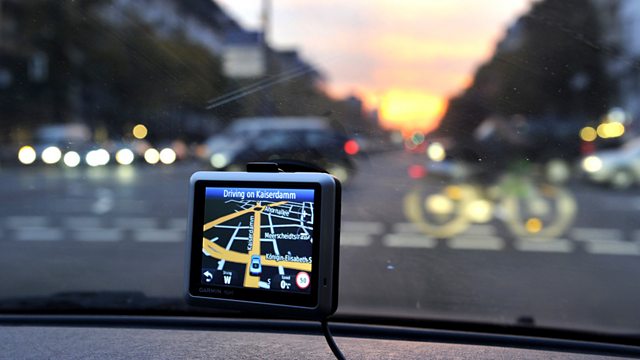Tracking
With ever smarter technology monitoring our behaviour how far should we compromise privacy in the interest of security and efficieny?
Do you ever worry about who might be looking over your shoulder? It is a hot topic at the moment - the shadowy world of tracking and surveillance. As smarter and smarter technology monitors our behaviour online, and even our physical movements in the workplace, how far should we be prepared to compromise privacy in the interests of security and efficiency? And how can the same technology be employed to better track endangered species? Bridget Kendall discusses these issues with Finnish cyber-security expert Mikko Hypponen, Kenyan vulture scientist Munir Virani, and Australian political geographer Anja Kanngieser.
Photo: A satellite navigation system. Credit: Andersen/AFP/Getty Images
Last on
More episodes
Previous
Next
Clip
-
![]()
Cybersecurity expert Mikko Hypponen: Two kinds of surveillance
Duration: 00:29
Chapters
-
Mikko Hypponen
Duration: 14:06
Anja Kanngieser
Duration: 08:53
60 Second Idea: Sensory Forcefields
Duration: 05:05
Munir Virani
Duration: 12:35
Mikko Hypponen
![Mikko Hypponen]() Mikko Hypponen is the Chief Research Officer for F-Secure. He has led his team through the largest outbreaks in history. He named the infamous Storm Worm, ran classified briefings on the Stuxnet worm, and has assisted law enforcement in USA, Europe and Asia on cybercrime cases. He was selected among the 50 most important people on the web by the PC World magazine and was included in the FP Global 100 Thinkers list. Mikko says that the debate around the recent leaks of US National Security Agency documents should now move on to how the rest of the world can compete with the US service providers to offer real alternatives.
Mikko Hypponen is the Chief Research Officer for F-Secure. He has led his team through the largest outbreaks in history. He named the infamous Storm Worm, ran classified briefings on the Stuxnet worm, and has assisted law enforcement in USA, Europe and Asia on cybercrime cases. He was selected among the 50 most important people on the web by the PC World magazine and was included in the FP Global 100 Thinkers list. Mikko says that the debate around the recent leaks of US National Security Agency documents should now move on to how the rest of the world can compete with the US service providers to offer real alternatives.Munir Virani
![Munir Virani]()
Munir Virani is Africa program director for The Peregrine Fund, a bird of prey conservation charity. He has been finding new ways to keep tabs on declining vulture populations in East Africa, in particular attaching GPS-GSM devices to individual birds to track their mortality rates and migratory patterns. He says that this tech is allowing us to understand for the first time where vultures are really going. Munir is also involved in the new , a project which will harness citizen sightings of birds of prey across the African continent, via a simple smartphone app.
Anja Kanngieser
![Anja Kanngieser]()
Anja Kanngieser is a political geographer in the Sociology department at Goldsmith’s College in London. One of her current areas of research is how industry tracks the performance of its workforce, and the radical new developments in this field in recent years, including the increasing use of technologies such as Radio Frequency Identification, GPS and Voice Directed Order Picking. She says that more research is needed into how these new systems, designed to increase productivity and efficiency, are adversely affecting employees’ privacy and health.
60 second Idea to Change the World: Sensory Forcefields
In this week’s 60 Second Idea to Change the World, social geographer Anja Kanngieser proposes a remote control to modulate the amount of sensory information you get while cycling round a city. The sounds of traffic, smells, visual advertising and media can get very overwhelming for someone on their bike. This device would work like a kind of force field, that can be set to your ideal level of stimulus (because everyone is different) which would then surround you and filter everything coming in. This invention would change the world because it would help cut out a large portion of the urban environmental stress that affects us daily, helping us to relax more and find ways of enjoying where we are.In Next Week’s Programme:
Breath: Could an individual human breath be as unique and revealing as a fingerprint? We discuss with biochemist Renato Zenobi, singer John Potter and tree-loving author William Bryant LoganBroadcasts
- Sat 21 Sep 2013 23:06GMT����ý World Service Online
- Sun 22 Sep 2013 10:06GMT����ý World Service Online
- Mon 23 Sep 2013 02:06GMT����ý World Service Online
What is the role of libraries in the digital age?
Podcast
-
![]()
The Forum
The programme that explains the present by exploring the past







